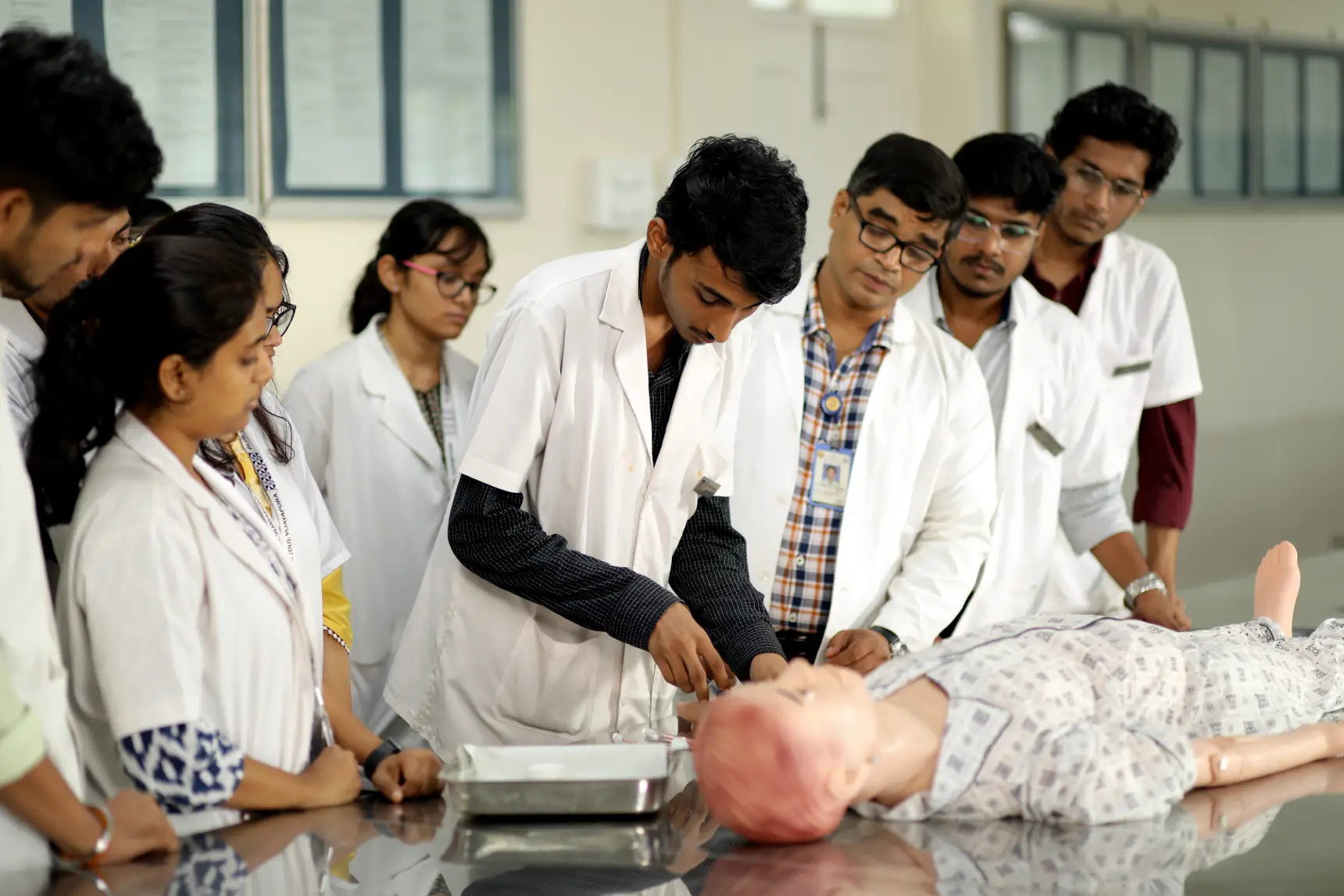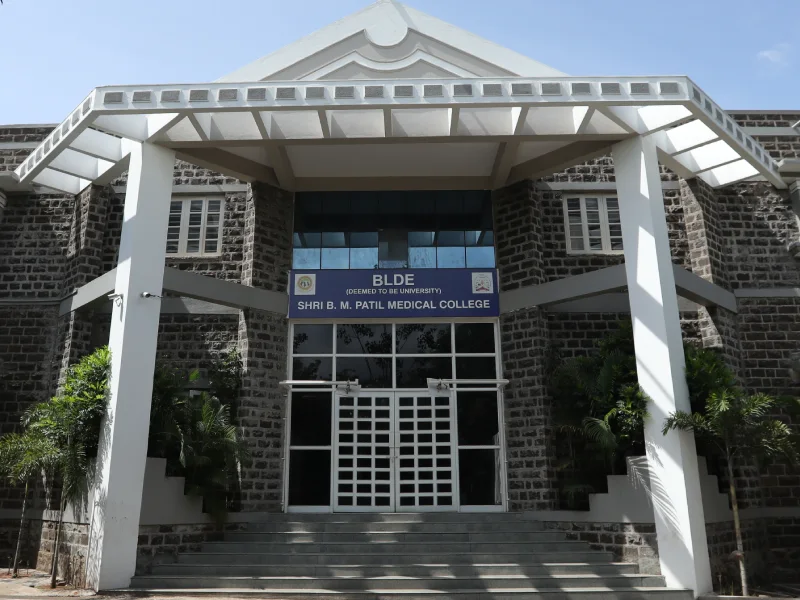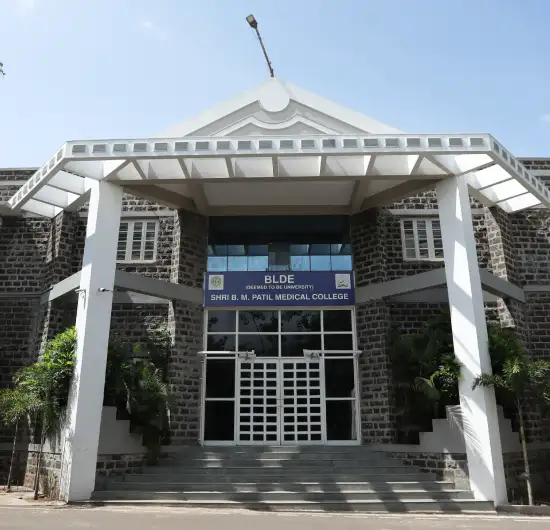Overview
Faculty development encompasses all activities related to the induction, training and further development of faculty members to optimize their effectiveness as teachers, trainers and leaders in education. While most teachers in medical education accomplish the task of teaching by emulating their seniors and trial and error, the need for systematic faculty development programmes (FDP) is well established. Faculty development is considered an essential tool to cope with new teaching tasks and is a means for participants to build important career relationships with peers, mentors and academicians who contribute to academic advancement.


Department Of Medical Education
Recognizing the importance of improving the quality of medical education, its role in improving health care and the development of our faculty, our Medical College established its own Medical Education Unit in 1997. Over the years, the department has progressed and presently is one of the critical departments with like-minded and passionate team members with the singular objective of improving the educational policies, strategies and outcomes. All the department members are primarily teaching faculty in various specialities. They are working together for a common cause in addition to their responsibilities
Format & Content
The methodology used depends on the needs, learners and focus areas with an emphasis on learner-centric methods. Commonly used methods are workshops, hands-on training, orientation and re-orientation, updates, guest lectures and other innovative methods. Each activity is planned and executed according to academic and statutory needs. All the programs are revised as per needs and feedback regularly.

Faculty
The Medical Education Department's faculty members consist of the department's head, a coordinator and other part-time members. The part-time members or teachers have their full-time responsibilities in their parent departments. Their contributions to the department, in terms of time, energy and scientific inputs, are voluntary for the cause of medical education. The Medical Education Department is open to any faculty member who is trained or interested in any aspect of medical education.
Activities of the department
The department is involved in various medical education-related responsibilities like curriculum development, preparation of necessary course material for different courses, review and organizing capacity-building programmes for the faculty related to teaching skills, coordinating and participating in various such activities with other departments, arranging workshops, guest lectures and any such activity, encouraging and training teachers in e-learning, etc.
Meetings
The yearly calendar of activities for the Medical Education Department is planned at the beginning of the academic year. The meetings, as of now, are scheduled as per the forthcoming event. Anyone interested in attending the meetings, apart from the members, is welcome and encouraged.
The Workshops
Basic Course Workshop on Medical Education Technology
This workshop exposes the participants to the following:
Curriculum planning and implementation
Developing and constructing learning objectives
Methods to foster adult learning
Lecture method and other methods of instruction
Optimal use of audio-visual aids and other teaching tools
Principles of lesson-planning.
Method of conducting a small-group teaching session.
Practice teaching sessions.
Concept of the teacher as a classroom leader.
Basics of student assessment and appropriate tools to conduct assessments.
Innovative teaching methodologies and planning and implementation of OSCE/OSPE, etc.
Postgraduate Orientation Workshop (Duration: 3 days)
This trains and sensitizes the first-year postgraduate/resident students to:
Select a topic for research, write a synopsis, understand statistics, and plan and implement a research design
Understand ethical issues related to biomedical research and obtain proper informed consent
Write a dissertation
Use the library, especially the digital library
Conduct a literature search.
Review a journal article.
Use the common audio-visual aids.
To develop soft skills.
Workshop on Student Assessment
This workshop exposes the participants to the following:
Principles of student assessment
Use of evaluation to promote learning
Guidelines for setting and evaluating essay questions
Guidelines for developing and assessing objective questions
Objective structured practical & clinical examination
Guidelines for setting a question paper.
PhD Orientation Programme
This workshop gives the delegates, who are newly joined PhD scholars, an insight into how to:
Write a dissertation
Use a library effectively
Review a journal article
Use the common audio-visual aids
The importance of developing soft skills
Understand the basics of ethics in biomedical research, informed consent, etc.
Microteaching Programmes
The newly appointed teachers get an insight into:
The importance and potential of the lecture method of teaching
The art of effective lecture taking
The importance and impact of set induction
Interns Orientation Programmes
This workshop exposes the participants to the following
Duties of an intern in various departmental postings
Development of communication skills and their importance
Emergency Medical Care, medico-legal aspects, ethical issues and empathy, etc.
MCI – Curriculum Implementation Support Program (CISP):
Competency-based medical education (CBME), 2.IMG: Goals, Roles & Competencies.
Deriving objectives from competencies, 4. Linking competency objectives to Teaching Learning Methods (TLM).
Linking competency objectives to Teaching Learning Methods (TLM).
Proposed changes in Graduate Medical Education Regulations (GMER) 2019.
Electives, Foundation Course, 7, AECOM module, 8, Early Clinical Exposure (ECE).
Integration.
Aligning & integrating competencies.
Skills training.
Assessment in CBME.
Aligning assessment to competency objectives & TLM.
Learning Resource Materials.
Curricular governance.
The road ahead.
PG cum Intern Symposium Forum on Patient Safety
This activity encourages participants to apply their knowledge for:
Defining human safety factor.
Understanding systems & the impact of system complexity on patient care.
Engaging with patients & caregivers.
Minimizing infection through improved infection care.
International CME in Medical Education
Theme: Competency-based medical education, the path ahead From: 05-09-2019 to 06-09-2019, Venue: Medical Education hall
Keynote address - Medical Education: Why change & why now? – Prof Robert Caroll.
Tailoring learning strategies for competency-based curriculum – Dr Renuka Sharma.
Need of CBME in Indian Scenario – Dr. Sunita Patil.
Critical thinking skills – Dr Mahalakshmi V. N.
Documenting the knowledge, Skills & Attitude in USA Medical School education-Prof Robert Caroll.
Skills training & competency acquisition – Dr Mahalakshmi V.N.
Incorporation of values, ethics & empathy in Outcome-based Medical Education- Dr Sunita Patil.
Designing teaching & learning methods in CBME: hands-on activity -Dr Renuka Sharma.
Workshop on Art and Science of Learning
This innovative half-day workshop for the freshers (Newly joined first MBBS students) is organized, keeping in mind the variety of learners and sensitizing them to choose the appropriate method.
Appropriate learning style.
Strategic learning.
Studying independently.
Time management.
Reading strategy, writing techniques.
Memory tips and techniques.
Stress management.
SENSITIZATION
GMER – 2019 and Principles of CBME.
Foundation Course.
Seven Principles of Integration.
Early Clinical Exposure.
Curriculum Development And Revision Of Curricula
The department coordinates all the BOS of the University in revising and updating curricula. It is the core team for suggesting appropriate teaching-learning methodology for the courses, screens all the curricula, updates them regarding regulations, and supports the teams in framing the course content, T-L methods and assessment methods.
Guest Lectures, CME & Penalties
The department faculty is actively involved in delivering guest lectures, acting as panellists and educational research resulting in publications. It conducted International CME in Medical Education & Research, Global Perspectives. Doyens of Medical Education like Dr. Robert Carroll. Professor of Physiology and Father of Modern Medical Education, East Carolina University, USA, Dr. Vivek A Saoji, Dean - Bharati Vidya Peeth Deemed University, Pune., FAIMER Fellow and International Resource Person in Medical Education and Dr. Jyoti M Nagmoti, Director, University Department of Health Education KLE University, Belagavi participated.
Undergraduate Bridge Courses
Initially started as orientation programmes for the newly joined undergraduates, these have now evolved into 'bridge' programmes, divided into Part 1, for the new entrants and Part 2, for the students going for their first clinical experience. This orientation programme exposes the new entrants and their parents to course curriculum, duration, and statutory requirements, including facilities and student support system information.
UG Orientation Programme /step 2 Bridge course:
This activity is for the new entrants to the hospital when the clinical exposure begins. This Programme sensitizes the entrants regarding hospital etiquette, ethics and code of conduct in the hospital environment.
Workshop on Research Grant Proposal Writing
This workshop focuses on understanding nuances of research and grant writing for faculty, covering the Ins & Outs of external funding sources, Procedures & Execution of Interdisciplinary budget research –the future, Data Collection & Data Quality assurance, How to search for funding resources, etc.
Re-Orientation Programme For Postgraduate Guides
This programme re-orients the teachers for being better postgraduate guides and the duties towards postgraduates, including guiding research.
Workshop on the construction of MCQs
This innovative hands-on workshop guides, encourages and trains the faculty in constructing multiple choice questions.

